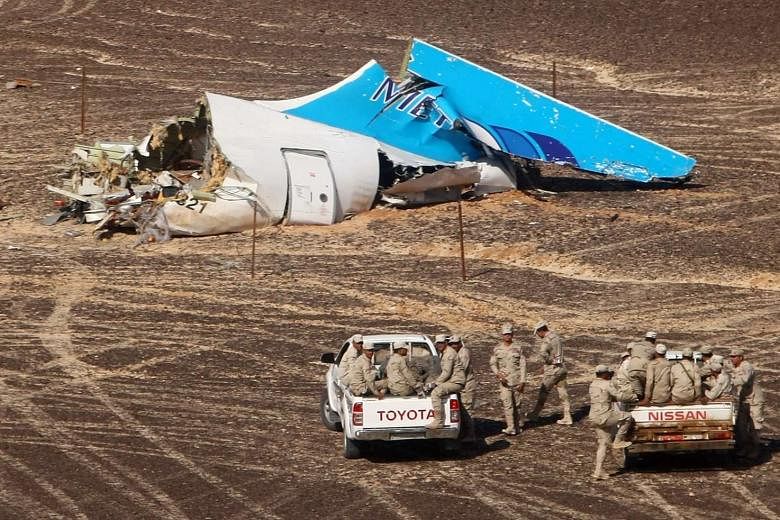CAIRO (AFP) - The Sinai Peninsula, where a Russian passenger jet crashed on Saturday killing all 224 people on board, is home to extremists and local tribes hostile to central government.
Covering about 60,000 sq km of desert and rocky mountains, the Sinai Peninsula is set between the Suez Canal to its west and the Gaza Strip and Israel to its east.
Its south-eastern coast along the Red Sea is dotted with holiday resorts, from its largest town Sharm el-Sheikh on the peninsula's southern tip to Taba on the Israeli border.
ISIS bastion
Between 2004 and 2006, a wave of deadly attacks targeted the peninsula's south-eastern seaside resorts of Sharm el-Sheikh, Dahab and Taba.
Lawlessness grew in the peninsula amid the security vacuum that followed the 2011 revolution that toppled longtime dictator Hosni Mubarak.
Attacks spiked after the army, led by Abdel Fattah al-Sisi before he became president, toppled Islamist president Mohamed Morsi in the summer of 2013.
Sinai Province, the Islamic State in Iraq and Syria (ISIS) group's Egyptian affiliate, has claimed most deadly attacks.
The main militant group in Sinai, Ansar Beit al-Maqdis, pledged allegiance to ISIS last November, becoming one of the first extremist organisations outside Syria and Iraq to do so.
Militants loyal to ISIS have killed hundreds of Egyptian soldiers and policemen, mostly in north-east Sinai around the towns of El-Arish, Sheikh Zuwaid and Rafah on the border with the Gaza Strip.
According to initial reports, the Russian passenger plane crashed in the Wadi al-Zolomat area of north Sinai.
The army has regularly announced the death or capture of militants since it launched an offensive against them mid-2012, but its figures cannot be independently verified.
Abandoned by state
The Sinai's Bedouin tribes have long complained of marginalisation, with Cairo's presence in the peninsula embodied by police checkpoints.
Many Bedouins say they are treated as second-class citizens who are not given their rights, complaining of poor infrastructure and education services.
Experts say that the local tribespeople's disgruntlement with the state has allowed extremists to take root in the peninsula.

